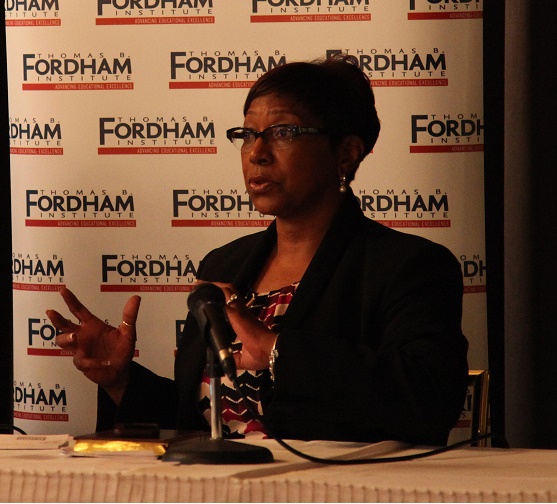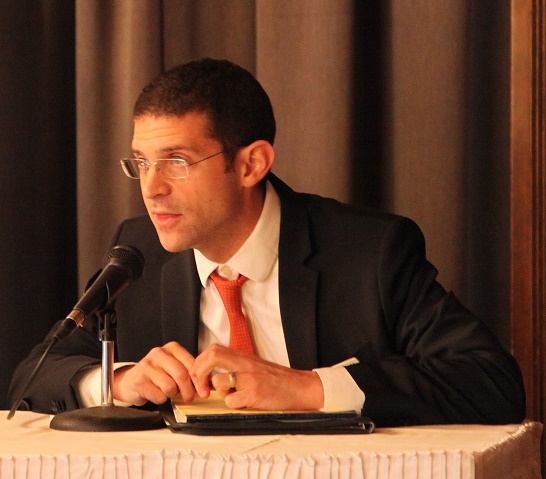School leaders are responsible for nearly everything that happens in a school—from creating a positive culture to tracking data to evaluating instruction to hiring (or sometimes firing) the teachers who most affect student achievement. Despite this extraordinary amount of responsibility, many policymakers and reformers devote their time to crafting policies that affect teachers rather than principals. In light of this, we at Fordham began thinking over some important questions: Are schools doing an effective job of recruiting, selecting, and retaining great school leaders? Are principals being trained effectively, and is there meaningful ongoing support? Are principals empowered to make decisions and challenge the status quo? What’s the right balance between autonomy and accountability?
At a breakfast event on Tuesday, we hosted presentations and a panel discussion from a few experts in the field. First we talked with Dayton Public Schools (DPS) Superintendent Lori Ward, who shared how difficult it is for a large, urban district like hers to recruit and retain effective principals.

Dayton Public Schools Superintendent Lori Ward
Ward explained that of the 28 buildings in DPS, 20 are led by a principal with three years of experience or less. Seeing this turnover as a detriment to success, DPS began investing in leadership training and recruiting teacher leaders from DPS who were already invested in the district and the community. The hope is to retain great leaders for longer periods of time.
Next, attendees were treated to presentations from two alternative principal training programs, both focusing on large urban school districts. Heather Grant, director of the Aspiring Principals Program in the Cleveland Metropolitan School District, emphasized the importance of ongoing support. Weekly professional development, one-on-one mentoring, real-life practice, and a clear set of expectations and goals are the hallmarks of the Cleveland program, both during training and after placement.

Heather Grant, Director of the Aspiring Principals Program in the Cleveland Metropolitan School District
Also presenting was Ben Lindy, the Executive Director of Teach For America in Southwest Ohio. Lindy’s program focuses heavily on the recruitment and selection of highly qualified candidates—TFA alum in particular. Like the other two programs, candidates with existing buy-in in the city to be served was a high priority.

Ben Lindy, Executive Director of Teach For America of Southwest Ohio
Each panelist mentioned that autonomy is an important aspect of successful school leadership, though restrictions like collective bargaining agreements and lack of budget control can hamper even the strongest leader’s efforts.

L-R Grant, Ward, Lindy participate in panel discussion
Ultimately, though, each panelist seemed to agree that a great school leader can succeed regardless of restrictions and context—and those are the kinds of leaders that our students deserve.
